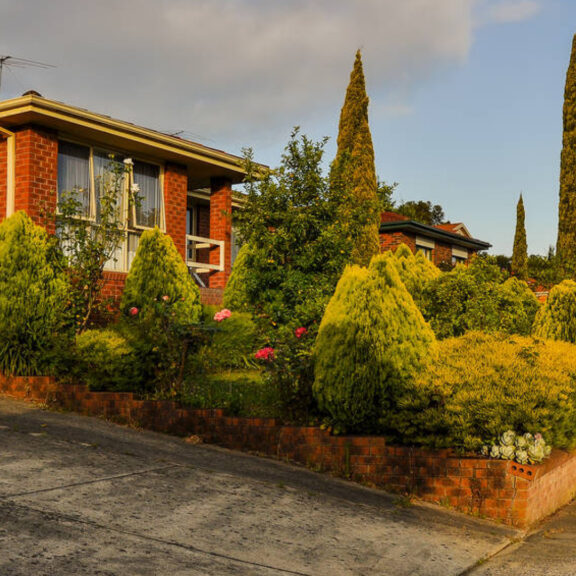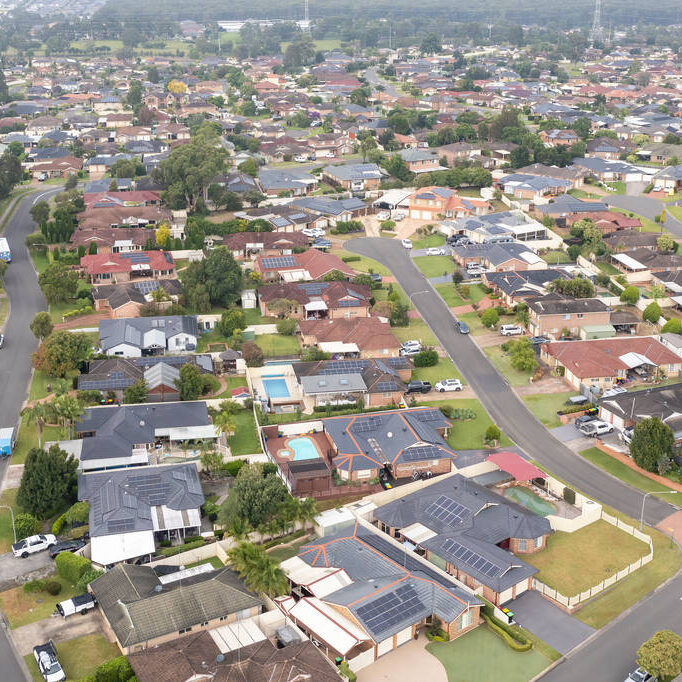You may be chasing more affordable prices, dreaming of a lifestyle change, or spotting investment potential in a different market altogether. No matter the reason, buying property in another state can be pretty tempting. But let’s be clear: buying interstate isn’t quite the same as finding a place down the road. You may have to […]
Investing in Property in Australia: Building Wealth Through Real Estate
Property ownership has long been referred to as the Great Australian Dream, but in today’s world, it’s more than just about buying your dream home. Many investors use real estate investments as a pathway to building wealth. But how do you exactly carve your path to wealth through real estate? Today, we’ll explore the pros and cons of investing in property in Australia, the types of properties that make excellent investments, the upfront costs you should be aware of and the strategies for gauging your borrowing capacity for investment loans. We’ll also touch on Deltos Finance’s critical role in making your property investment venture smooth and cost-effective.
The Pros of Investing in Property in Australia
Investing in property in Australia may offer multiple advantages. Weighing up the benefits versus the risks, along with understanding how property investment works, is crucial for making investment decisions. Let’s explore the potential advantages in more detail:
Steady Capital Growth
While there are peaks and troughs in the value of property, historically, Australian property has shown consistent capital growth over the long term. This means a property investment has the potential to appreciate, if held as part of a long term investment strategy. For example, let’s consider a scenario where you invest $400,000 in a property. Over the years, due to capital growth, the property’s value may increase to $650,000, resulting in a $250,000 profit if you decide to sell.
Rental Income
Real estate investing can provide a regular stream of rental income, which may be used to help cover the mortgage or provide passive income if the rental income is higher than the expenses and mortgage repayments.
Tax Benefits
There are taxation strategies and deductions that may be utilised by property investors, including negative gearing and deductions for depreciation expenses. Negative gearing is a strategy that allows the property investor to offset losses from the investment property against taxable income, potentially reducing the overall tax liability. Depreciation expenses may enable the investor to claim deductions for the wear and tear of assets within the property, such as fixtures and fittings.
Tangible Asset
Unlike other forms of investment, real estate is a tangible asset you can see and touch, giving investors a sense of security. You can physically inspect your property, make improvements and control its management. Having a tangible asset is more of a perceived benefit, rather than an actual benefit when it comes to investment types. However, you may reap benefits by actually utilising the home for holiday purposes etc.
Now, Let’s Talk about the Drawbacks
While there are potential benefits of investing in property, it’s still essential to be aware of the potential drawbacks to ensure you’re making informed decisions:
High Upfront Costs
Acquiring an investment property involves substantial upfront costs, including stamp duty, conveyancing fees, and inspection costs. For example, if you purchase a property valued at $500,000, you may incur around $20,000 in stamp duty fees.
Market Risks
Like any investment venture, real estate carries market risks. Market conditions can fluctuate, affecting property values and rental income. It’s a good idea to look at investment property portfolio diversification methods to mitigate this risk. For instance, purchasing different property types in various locations may help reduce market risk. Please seek professional financial advice to ensure your investments are properly diversified.
Ongoing Expenses
Property ownership comes with ongoing expenses, such as maintenance costs, insurance premiums and property management fees. It’s important to budget for these expenses to keep your real estate investment financially viable.
Illiquidity
Real estate is relatively illiquid compared to other forms of assets, for example cash in a savings account or shares that can be converted to cash on the stock market. After all, selling a retail space or condo unit can take time and may not be possible during a market downturn. If cash flow and liquidity is a concern, it’s important to seek financial advice for a strategy to navigate potential liquidity challenges.

What Type of Property Makes a Good Investment?
Selecting a good investment property essentially depends on your goals and budget. But to give you more idea on how to invest in real estate effectively, here are some property types that have proven to be lucrative investments in Australia:
- Residential Apartments and Condos: These are often favoured by investors for their potential for capital growth and rental income. Consider factors like location, demand and amenities when selecting residential properties.
- Commercial Buildings: Commercial properties may offer stable rental income and longer lease terms since you’re dealing with businesses. Look for properties in areas with vigorous economic activity and low vacancy rates.
- NDIS/SDA Properties: Investing in National Disability Insurance Scheme (NDIS) or Specialist Disability Accommodation (SDA) properties may provide long-term rental income with additional SDA payments through the tenants NDIS plan. NDIS/SDA properties are designed to accommodate people with disability.
The Upfront Costs of Property Investments
No matter where you invest, it’s going to be a numbers game. You have to understand the upfront costs before you invest in real estate. These may include:
- Stamp Duty: As mentioned, this state-based tax can be a significant upfront expense when purchasing an investment property. The exact amount varies depending on the property’s value and location.
- Conveyancing Fees: Keep in mind that legal and conveyancing fees are incurred during the property purchase process. It’s advisable to obtain quotes from different conveyancers to ensure competitive pricing.
- Property Inspection and Valuation Costs: Building inspections and property valuation costs are essential for accurately assessing the property’s condition and market value.
Now, How Much Can You Borrow?
Planning to apply for property investment loans to fund your real estate investments? It’s important to understand your borrowing capacity for investment loans, which may be based on the following factors:
Income and Expenses
Your income and existing financial commitments play a crucial role in how much you can borrow from a bank or lender. It’s essential to have a clear picture of your financial situation, including your salary, rental income and expenses. Talking to an experienced mortgage broker can help you look at these financial matters better.
Credit Score
A strong credit score can improve your borrowing capacity and access to better investment property loan terms. So, even before you decide to purchase a condo unit or commercial space to rent out, ensure your credit history is in good shape by paying bills on time and managing your credit card and personal debts responsibly.
Property Value
Of course, the value of the property you intend to buy as an investment also affects your borrowing capacity. It’s important to conduct thorough research and property assessments to ensure you invest in properties with growth potential.
Loan Term and Interest Rate
The loan term and interest rate on your property investment loan are crucial factors that can impact your borrowing power. Remember, longer loan terms may result in lower monthly repayments, but it also extends the time it takes to repay the loan, meaning you’ll be charged interest over a longer period. Consider how that period affects your long-term investment goals.
Let Deltos Finance Help You
At Deltos Finance, we understand that property investment is a significant decision, and we’re here to assist you every step of the way. Our team of local mortgage professionals can provide expert guidance, compare loan products from multiple lenders, and help secure the most suitable and competitive loan for your investment needs.
With our assistance, you can navigate the complex world of property investment effortlessly, making the most of the opportunities available in the Australian real estate market. We take pride in being Hobart’s best mortgage broker, with one of the highest loan approval rates across mortgage brokers in Australia.
Ready to begin your property investment journey? Contact Deltos Finance today to get started!
Enquire Now
Find Your Perfect Finance Solution
Let's discuss your finance needs. We’re here to help.
More posts from Deltos Finance

Suburbs with the Highest Rental Yield in Tasmania
The term “rental yield” is music to any property investor’s ears. It’s the key metric that indicates the annual return on your investment, essentially the percentage of the property’s value that comes back to you in rental income. In a market like Tasmania, which has been gaining traction for its overall investment appeal, pinpointing the […]

Launceston: A ‘Second Wind’ Property Market You Should Invest in Now
When talk turns to Tasmania’s property scene, it’s easy for the spotlight to shine brightly on Hobart, with its bustling waterfront and historic charm. But just a little further north, nestled at the head of the picturesque Tamar Valley, lies Launceston—a city that quietly hits its stride and presents a compelling proposition for savvy property […]

How Often Does Property Double in Value?
Every homeowner has likely dreamed of their property doubling in value in the future, turning into a valuable nest egg or funding their next big adventure. But how long does it actually take for a property to double in value? And how often does it happen? While there’s no magic eight-ball to predict the property […]

Stamp Duty Exemption for First-Home Buyers in Tasmania: Has It Paid Off?
Purchasing a property has historically come with major financial difficulties, especially for first-home buyers in Tasmania or any other state for that matter. The stamp duty is one of those most notable monetary challenges for homebuyers. Essentially, it’s a tax levied on property purchases that often adds tens of thousands of dollars to upfront costs. […]

Difference Between Airbnb and Traditional Renting in Hobart
Hobart’s property market has become a hotspot for investors largely because of its strong tourism demand and stable rental market. But that doesn’t mean all property investments in this Tasmania capital are a sure win. One factor to consider is deciding between short-term rentals like Airbnb and traditional long-term renting. Each option has distinct advantages […]

Is Launceston a Good Place to Live?
The short answer is yes, especially if you want a more affordable lifestyle without giving up access to key services, natural beauty, and long-term opportunities. Also, with its blend of heritage charm, steady economic growth, and a property market still within reach for many Australians, Launceston, Tasmania, is gaining momentum as a popular area for […]

Hobart Property Management Fees: A Complete Guide
You’ve already secured an investment loan and finalised your rental property purchase in Hobart. Now, it’s time to take action by listing the property for rent and managing it effectively to start generating rental income. But how much should you expect to spend on property management in Hobart, Tasmania? As Tasmania’s capital continues to attract […]

How Rising Property Prices Affect Your Home Loan and Buying Potential
Here’s the good news: the Australian real estate market has been experiencing significant growth in recent years, with house prices in major cities reaching record highs. It can be a huge win for homeowners and investors, especially those planning to sell their properties soon. However, this can be an issue for potential property buyers, including […]

Build Your Wealth with a Simple Guide to Using Your Home Equity
Building wealth requires adopting the right mindset and being strategic when using available financial instruments. Essentially, it’s about making your money work in your favour. But what if you don’t have enough cash to start creating wealth? There’s an underutilised strategy that we want to share with you, and that is leveraging your home’s equity—the […]


